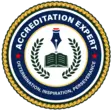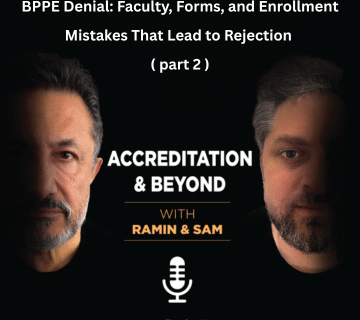
The Texas Education Agency (TEA) acts as the state authority responsible for overseeing public primary and secondary education. Its approval and regulatory processes ensure that public school districts and charter schools comply with state education standards. Although TEA does not directly regulate private K-12 schools, it acknowledges certain accreditation bodies that oversee their quality and curriculum standards. Grasping the approval process for schools in Texas is vital for educators, administrators, and institutions aiming to establish or maintain compliance with TEA regulations.
TEA’s Role and Accreditation Requirements for K-12 Schools
Public school districts in Texas must meet the Texas Education Agency’s accreditation standards to maintain their ability to operate. Accreditation status is determined by compliance with academic performance measures, financial accountability, and adherence to legal requirements. Schools are categorized under various accreditation levels, ranging from fully accredited to revoked status. Districts that do not meet performance or financial standards may be placed on probation and required to take corrective action before losing their accreditation.
Accredited districts must adhere to state curriculum guidelines, employ certified educators, and administer standardized assessments such as STAAR exams. These requirements ensure consistency in educational quality and student outcomes across public schools in Texas. Although private schools are not directly accredited by the TEA, they often seek recognition from TEPSAC-approved accrediting agencies to demonstrate their commitment to educational standards.
Application Process for New K-12 Schools
Establishing a new K-12 school under TEA oversight primarily pertains to charter schools. Traditional public schools function within established independent school districts, while new charter schools must obtain state approval through a comprehensive application process.
Prospective charter school operators must submit an application to the TEA that details their educational mission, curriculum plan, governance structure, and financial sustainability. Applications undergo a thorough multi-stage evaluation process, which includes written assessments and interviews with key stakeholders. Approved charter schools enter into a contract with the state, which outlines operational expectations and performance metrics.
Charter school applications are very competitive, with a limited number of approvals given each year. Only applicants who demonstrate strong educational models, financial stability, and governance capacity are authorized to operate.

Compliance Expectations for K-12 Schools
After becoming operational, schools must comply with TEA’s ongoing requirements. These encompass maintaining strong academic performance, ensuring financial integrity, and fulfilling reporting obligations. Schools are required to submit student performance data, financial reports, and annual accreditation documentation. Charter schools encounter additional oversight, including the risk of contract revocation if they do not meet state expectations.
Public school districts must continually comply with TEA regulations to maintain their accreditation status. Those that receive warnings or are placed on probation must take corrective actions and report their progress to TEA. Private schools seeking accreditation through TEPSAC-member organizations undergo regular reviews to ensure they meet the required educational and operational standards.
How Accreditation Expert Consulting Can Help
Navigating the TEA approval and compliance process can be complex, requiring expertise in regulatory standards, application procedures, and ongoing operational oversight. Accreditation Expert Consulting provides comprehensive support for new and existing K-12 schools in Texas, ensuring smooth approval processes and long-term compliance.
For those applying to establish a charter school, our team assists with developing strong application materials, preparing for review panel interviews, and structuring governance frameworks that align with TEA’s expectations. We help schools avoid common pitfalls that can lead to application rejection or operational challenges down the line.
For existing school districts and charter schools, we offer support in maintaining accreditation, improving compliance processes, and addressing any areas of concern raised by TEA. Our consultants guide institutions through corrective action plans, curriculum alignment, and performance improvement strategies to meet accreditation and accountability requirements.
Private schools seeking TEPSAC-recognized accreditation can also benefit from our expertise in selecting accrediting agencies, preparing for site evaluations, and ensuring adherence to state-recognized educational standards.
With decades of experience in education compliance and accreditation, Accreditation Expert Consulting simplifies the path to TEA approval. Our team is dedicated to helping schools achieve and maintain regulatory success, allowing educators to focus on delivering high-quality instruction without the burden of administrative complexities.
For expert guidance on TEA approval and compliance, contact us today to discuss how we can support your school’s success in Texas education.




